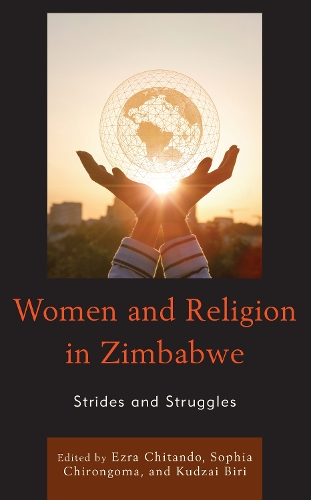
Women and Religion in Zimbabwe: Strides and Struggles
(Hardback)
Publishing Details
Women and Religion in Zimbabwe: Strides and Struggles
By (Author) Ezra Chitando
Edited by Sophia Chirongoma
Edited by Kudzai Biri
Contributions by Ezra Chitando
Contributions by Kudzai Biri
Contributions by Sophia Chirongoma
Contributions by Macloud Sipeyiye
Contributions by Elias G. Konyana
Contributions by Tracey Chirara
Contributions by Dudzirai Chimeri
Bloomsbury Publishing PLC
Lexington Books/Fortress Academic
7th July 2022
United States
Classifications
Professional and Scholarly
Non Fiction
Christianity
Islam
Gender studies: women and girls
200.82096891
Physical Properties
Hardback
308
Width 162mm, Height 226mm, Spine 23mm
572g
Description
The chapters in this volume foreground the ambivalent role of religion and culture when it comes to African womens health and well-being. Reflecting on the three major religions in Africa, i.e. African indigenous religions, Christianity, and Islam, the authors illustrate how religious beliefs and practices can either enhance or hinder womens holistic progress and development. With a specific focus on Zimbabwean womens experiences of religion and culture, the volume discusses how African indigenous religions, Christianity, and Islam tend to privilege men and understate the value of women in Africa. Adopting diverse theological, ideological, and political positions, contributors to this volume restate the fact that the key teachings of different religions, often suppressed due to patriarchal influences, are a potent resource in the quest for gender justice. In sync with the goals for gender justice and women empowerment envisioned in the United Nations Agenda 2030 and Africa Agenda 2063, the contributors advocate for gender-inclusive and life-enhancing interpretations of religious and cultural traditions in Africa.
Reviews
A comprehensive contextualized and contemporary resource on womens experiences and status in African Indigenous Religions, Christianity, and Islam cleverly nuanced with the role of men in Zimbabwe. It is a must-read for all researchers and anyone interested in religion and the wellbeing of women and men in African contexts and beyond.
-- Loreen Maseno, Maseno UniversityAuthor Bio
Ezra Chitando serves as Professor of Religious Studies at the University of Zimbabwe and theology consultant on HIV for the World Council of Churches.
Sophia Chirongoma is senior lecturer in the religious studies department at Midlands State University, Zimbabwe. She is also an academic associate/research fellow at the Research Institute for Theology and Religion (RITR) in the College of Human Sciences, University of South Africa (UNISA).
Kudzai Biri is associate professor in the department of religious studies, classics, and philosophy at the University of Zimbabwe.
